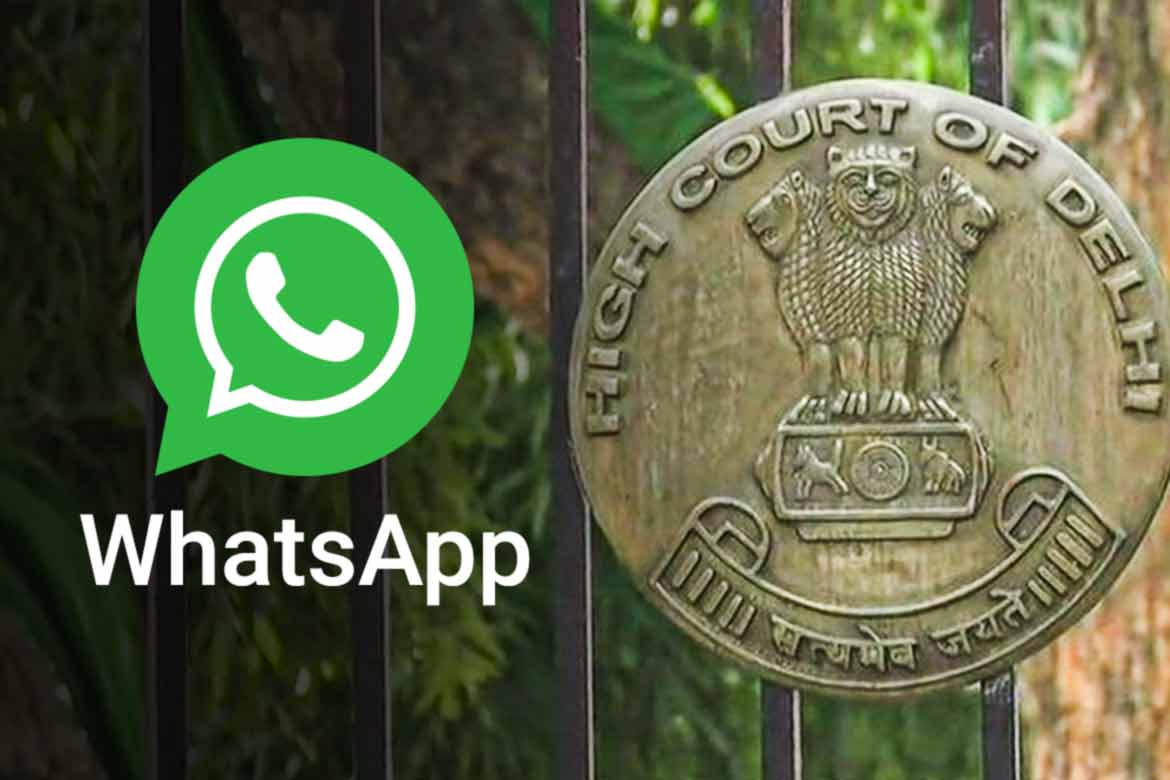Messaging app WhatsApp has reached the court against the new IT rules of the central government. In the guidelines released three months ago, WhatsApp and other social media companies have to keep the origin information of the messages sent on their messaging app. The social media giant has now approached the Delhi High Court against theserules of the government.
Government’s response:
The Ministry of Electronics and IT also responded to WhatsApp’s allegations. The Ministry said that the Government of India respects the Right to Privacy. The government has no intention of harming it when WhatsApp needs to disclose the origin of a particular message. Such a need is required only in those cases when a specific message is required to be banned or there is a matter of investigation and punishment for serious crimes like sexually explicit content.
Ministry’s take on this:
The ministry has said in its statement that on the one hand, WhatsApp wants to make the privacy policy mandatory, in which it wants to share its user data with the parent company Facebook. On the other hand, it makes every effort not to implement the guidelines necessary to maintain law and order and ban fake news.

Also read: SC Issues Notice To WhatsApp, Tells Privacy Vital Than Money
Any operations being carried out in India are covered under the law of the land. WhatsApp’s refusal to follow the guidelines is a violation. As an important social media intermediary, WhatsApp seeks protection as per the provisions of the IT Act, which is not appropriate.
WhatsApp’s apprehension:
On the other hand, the company says that this decision of the government will end the privacy of the users. WhatsApp’s spokesperson said that tracing chat in this would violate people’s right to privacy. For us it would be like keeping an eye on all the messages sent on WhatsApp, leaving no justification for end-to-end encryption.
Facebook and Whatsapp will be in communication with govt.
According to the spokesperson, the company has been constantly opposing those aspects with civil society and experts from all over the world, which may threaten the privacy of the user. In the meantime,the company will continue to negotiate with the Government of India to find a solution to the matter.
Also read: Sandes App: Can it compete with WhatsApp?
Meanwhile, Facebooksaid on Tuesday that it would follow IT regulations. Also, will continue to talk to the government on some issues. According to IT regulations, the process is on to implement operational procedures and increase efficiency. The company will ensure that people can speak freely and securely on its platform.
No intermediary has complied with new rules
The government released guidelines for social media platforms on February 25 this year and gave them 3 months to implement them. The deadline came to an end on Tuesday, May 25. Social media platforms such as WhatsApp, Twitter and Instagram have not yet revealed whether the guidelines have been implemented. In such a situation, the government can take action against them.
What are the new IT rules?
- All social media should appoint 3 officers, namely, Chief Compliance Officer, Nodal Contact Person and Resident Grievance Officer in India. They should live in India only. Their contact numbers should be visible on the app and website.
- Social media platforms should also explain what is the mechanism for lodging the complaint. The officer must resolve the complaint within 24 hours and within 15 days tell the complainant what action was taken on the complaint.
- Create a system through automated tools and technology to identify the content of rape, child sexual abuse. Besides, identify such information, which has been removed from the platform first. There should also be sufficient staff to review and monitor the working of these tools.
- The platform must publish a monthly Report. It should have information about the complaints received in the month, the action was taken on them. The link and the content that has been removed must be disclosed in this report.
- If the platform removes any objectionable information, then it will have to inform the person who posted, uploaded or shared this content. The reason for removal should also be given. The user should also be given an opportunity to appeal against the action of the platform. The mechanism of settling these disputes should be constantly monitored by the Grievance officer.
